
What is Cloud Hosting? Here is Everything You Must Know About It
Cloud Industry Updated on : August 7, 2025Summary: In this article, we are going to know about what cloud server hosting actually is, how it works, and why you should use it. So, stay tuned and read the full article.
Table of Contents
Web hosting is a buzzword today because of the multiple benefits it has, for both website owners as well as web hosting companies. As this idea is gaining more and more popularity, the concept of cloud hosting is picking up as well. Post the advent of Covid-19, several businesses have started operations online, implying the increased use of websites. This is one of the major reasons why web hosting is at its peak today.
Today, many companies employ specialists that design, optimize and manage resources that are needed for cloud server hosting. They analyze the needs of different kinds of businesses and configure resources accordingly. Instead of trying to modify systems, websites can import structures from cloud hosts.
What is Cloud Server Hosting?
Cloud hosting is a type of web hosting service that utilizes a network of interconnected virtual servers to distribute the resources required to maintain a website or web application. Unlike traditional hosting options that rely on a single physical server, cloud web hosting operates across a cluster of servers, often located in different data centers.
What are the Types of Cloud Hosting?
- Public Cloud
- Private Cloud
- Hybrid Cloud
There are three main kinds of cloud server hosting which are selected by web hosts. The kind of hosting service that is chosen depends on different parameters like budget, scalability, and type of clients catered to.
1. Public Cloud
The public cloud is open to all stores where you can access information online, depending on whether you use the pay-per-usage method. The Cloud Service Provider (CSP) efficiently manages and operates computing resources in this public cloud. The CPS looks after the supporting Infrastructure and ensures the resources are easily accessible and scalable for users.
2. Private Cloud
Private clouds can also be stated as internal clouds or corporate clouds. Businesses widely use them to develop and manage their data centers internally or by a third party. They can be easily implemented by utilizing open-source tools.
3. Hybrid Cloud
A hybrid cloud solution is mainly secured as the services operating on the public cloud can be easily accessed by anyone. In contrast, the services running on a private cloud can be viewed only by the organization’s users. Therefore, in a hybrid cloud setup, organizations can easily leverage the public and private cloud benefits, creating a scalable and flexible computing environment. Also, the public cloud portion enables using cloud services offered by third-party providers that are easily accessible over the Internet.
Pros and Cons of Cloud Hosting
Pros of Cloud Hosting
- Easy Upgradation
- Flexibility
- Cost-effective
1. Easy Upgradation
With cloud hosting, embrace the mobility of growth. As your needs change, you may easily switch between resource tiers without any effort. Cloud hosting gives you the flexibility to easily customize your hosting environment to your goals, whether that be scaling up your operations or handling traffic spikes.
2. Flexibility
In the dynamic landscape of modern web operations, flexibility reigns supreme. Cloud hosting offers you the ability to swiftly adjust your resources in response to fluctuating demands. This agility ensures that your digital endeavors remain nimble and responsive, capable of meeting changing user expectations and industry trends.
3. Cost-effective
Cloud hosting operates on a pay-as-you-go model, enabling you to allocate your resources precisely to your current needs. Bid farewell to overprovisioning and excessive expenditure. With cloud hosting, your financial outlay aligns harmoniously with your actual resource consumption, optimizing your budget and enhancing your bottom line.
Cons of Cloud Hosting
- Possibility of cyberattacks
- Loss in Productivity
- Highly dependent on internet connectivity
Cloud hosting can be a complicated concept to understand. It is not easy for everyone to pay attention to the little details of cloud hosting. If not used wisely, cloud hosting can not only cost more money but can also lead to possible cybercrimes.
1. Possibility of cyberattacks
Multiple websites share the same resources and server in this case. This implies that it might be easier for some websites to hack into others. Cyber-attacks are not unusual when confidential and sensitive data is passed around online. Hence, website owners have to be carefully implement cloud disaster recovery strategy in case hackers enter your system.
2. Loss in Productivity
Websites hosted under this framework collectively utilize identical resources, encompassing CPU, RAM, and bandwidth. When a particular website encounters an abrupt surge in traffic, it necessitates a greater allocation of these shared resources. Consequently, other co-hosted websites encounter a reduction in available resources, leading to potential performance degradation.
3. Highly dependent on internet connectivity
The interplay of internet connectivity and cloud hosting is deeply intertwined, given the prevalent online nature of operations. Even a minor disruption in the website owner’s internet connectivity can lead to potential downtime for the website. This susceptibility can result in the website losing valuable customers and witnessing a decline in overall performance.
How Does Cloud Hosting Work?
Having understood what is a cloud server, we should now see how they operate? Cloud servers operate like ordinary servers only because their distinguishing factor is location; they can be accessed from anywhere as long as there is an internet connection. By contrast, conventional or dedicated servers typically are hosted on-site and can only be accessed by users at that location.
Also, unlike dedicated servers, cloud servers allow for sharing memory and processing power across linked (virtual) servers. Due to their server space accessibility, cloud servers are capable of propelling every cloud computing models: Infrastructure as a Service (IaaS), Platform as a Service (PaaS) and Software as a Service (SaaS). Furthermore, Cloud data servers possess all the required software installed thus there is no need to worry about any upgrade.
7 Best Cloud Hosts That You Can Choose From
- Atlantic.Net
- AWS
- Kamatera
- Azure
- Brightbox
- Alibaba Cloud
- Digital Ocean
- Google Cloud Host
With a variety of options to choose from, a website owner might get confused about the best cloud hosts available. Each cloud host has its specialty and a unique factor that distinguishes it from the rest. Here is a list of 7 of the best cloud hosts you can choose from:
1. Atlantic.Net
Atlantic.Net is among the top-rated cloud hosting providers that caters to businesses of all sizes. All cloud servers are backed by enterprise-grade solid state drives (SSDs), offering high performance for your cloud applications and servers. It also provides freedom and flexibility through its monthly cloud hosting pricing, which includes various plans tailored for general purposes, storage optimized, memory optimized, and compute optimized use. Also, the pricing is billed on an hourly, monthly, 1-year, and 3-year basis.

2. AWS
AWS stands for Amazon Web Services. Amazon owns and maintains the network-connected hardware required for AWS. Businesses can instantly access as many resources as they need. It is the world’s most comprehensive cloud platform. The power infrastructure and applications for websites and businesses. AWS provides technology services on the internet with a pay-as-you-go model. It was launched in 2006 and has successfully expanded to more than 20 countries across the globe. With extremely flexible pricing plans, it is best for businesses that do not want to exceed 5 servers. It is considered to be the innovator in the cloud industry.
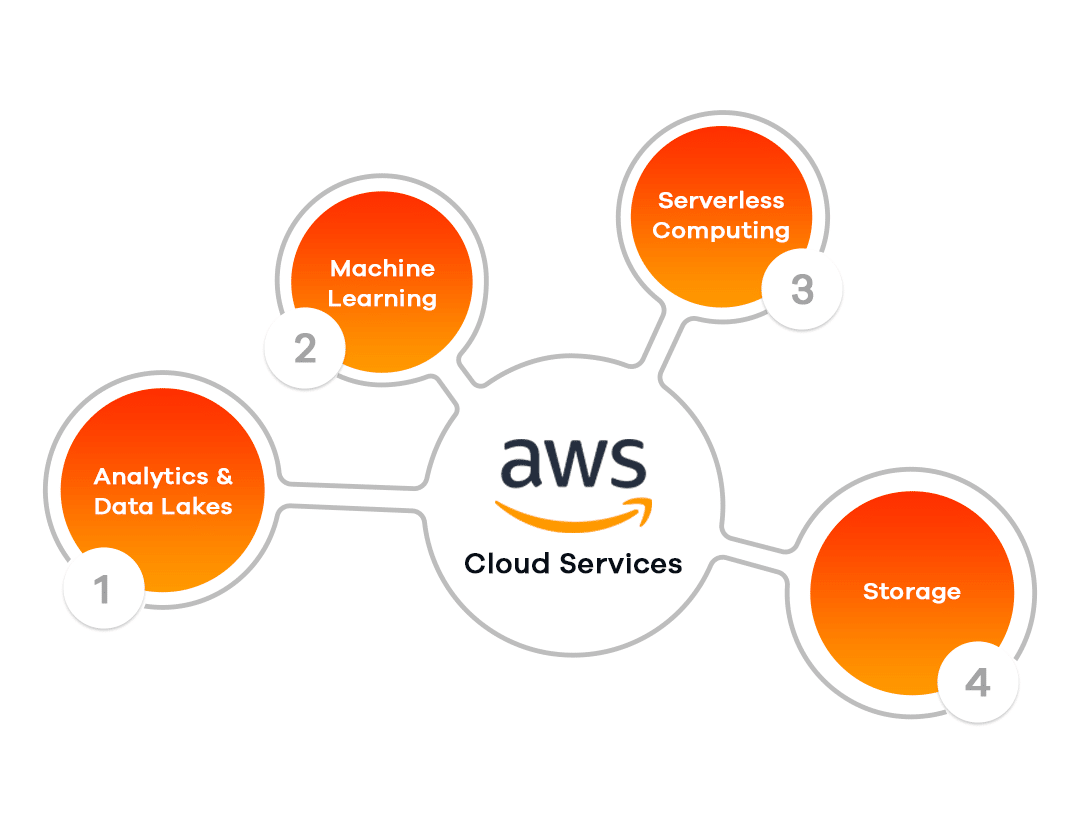
3. Kamatera
Kamatera is a popular cloud service that allows different kinds of websites and organizations to get cloud-hosted. It was established in 1995 and has now spread to over 13 countries with a huge client base. The cloud web hosting company does not believe in focusing on one aspect of cloud server hosting but provides a range of solutions to the customers. With a set of efficient and skilled employees, Kamatera provides 24/7 support to its customers. They also offer a 30 day trial for beginners. With an uptime guarantee of 99.95%, they have global data centers that make their cloud infrastructure more adaptable.
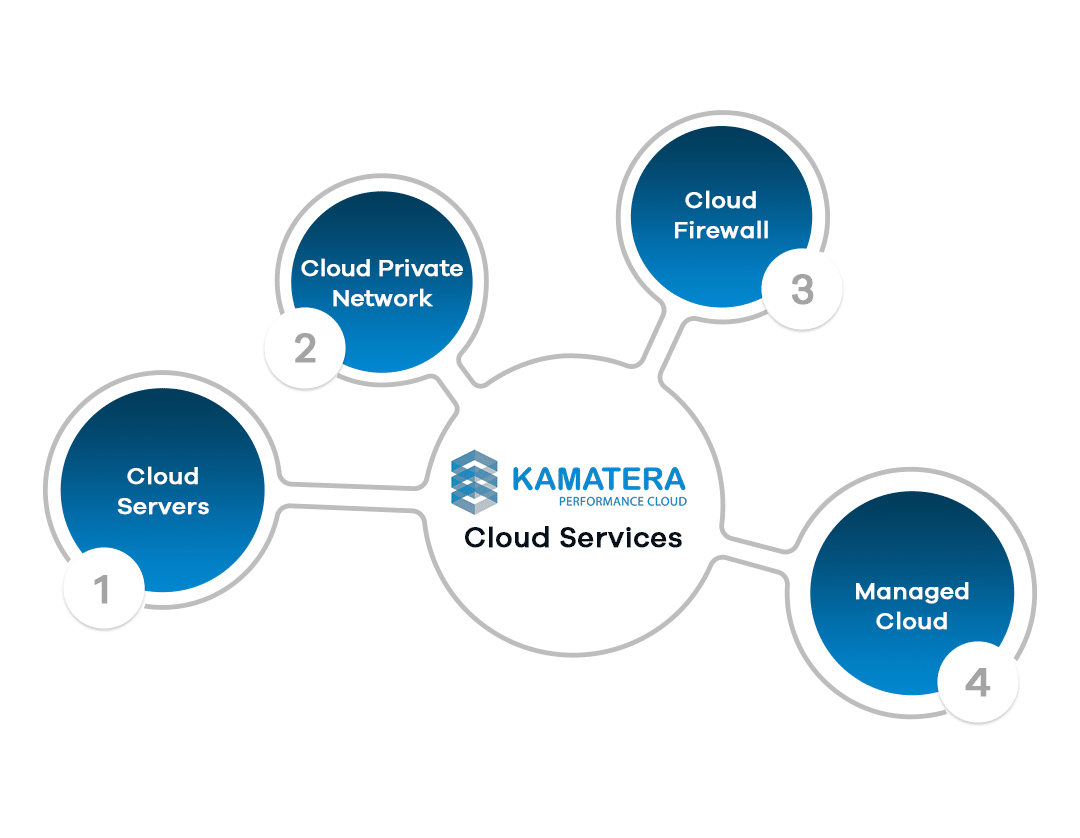
4. Azure
Azure is a cloud service run by Microsoft. They believe in creating an extraordinary experience for their customers with their impeccable services. With savings packages that greatly help you to cut down on your costs, Azure is also committed to maintaining the highest level of security. Azure allows first-time users to build and create a free account for 30 days, which helps them understand the cloud server host better. They promise to charge the customer for only what is used and have solutions for all industries and all kinds of organizations.
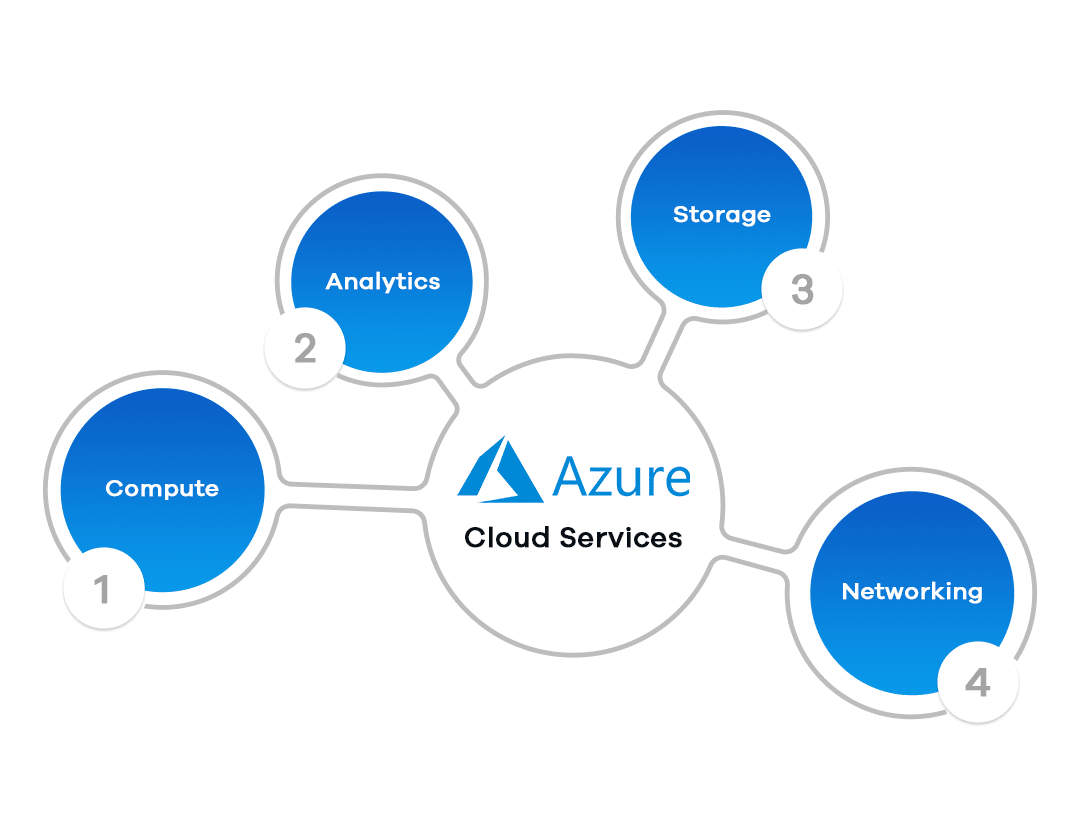
5. Brightbox
Established in 2005, Brightbox allows customers to start with a GBP 50 credit for the first month. The UK owns and operates it, and it is unbelievably fast and flexible. Brightbox guarantees 100% uptime, or a service credit in case there is downtime because of a technical glitch in their infrastructure. Brightbox has been hosting big brands like NHS, ASDA, and MTV for a long time now.
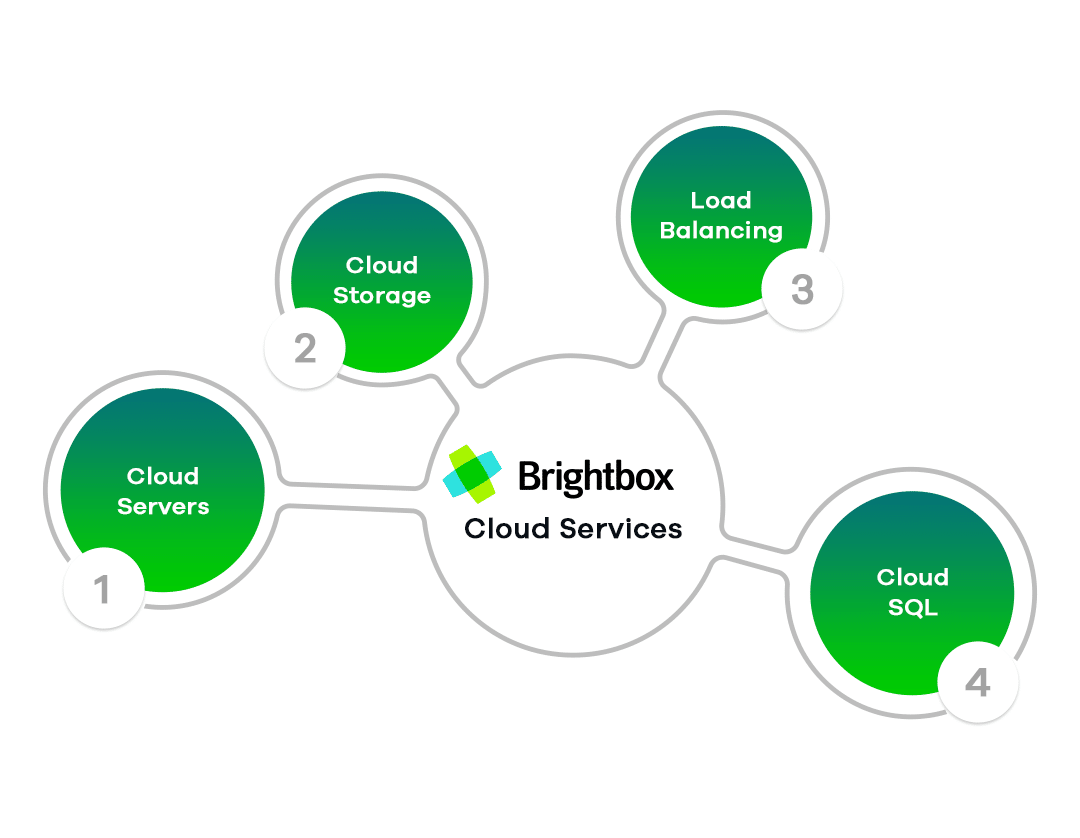
6. Alibaba Cloud
It is a flexible web host that allows websites to transfer data using FTP. All kinds of websites – personal blogs or e–commerce websites – consider it ideal. It is also very easy to build a website with Alibaba Cloud if you have the prerequisites. The website owner must create FTP credentials in order to upload web files using FTP.
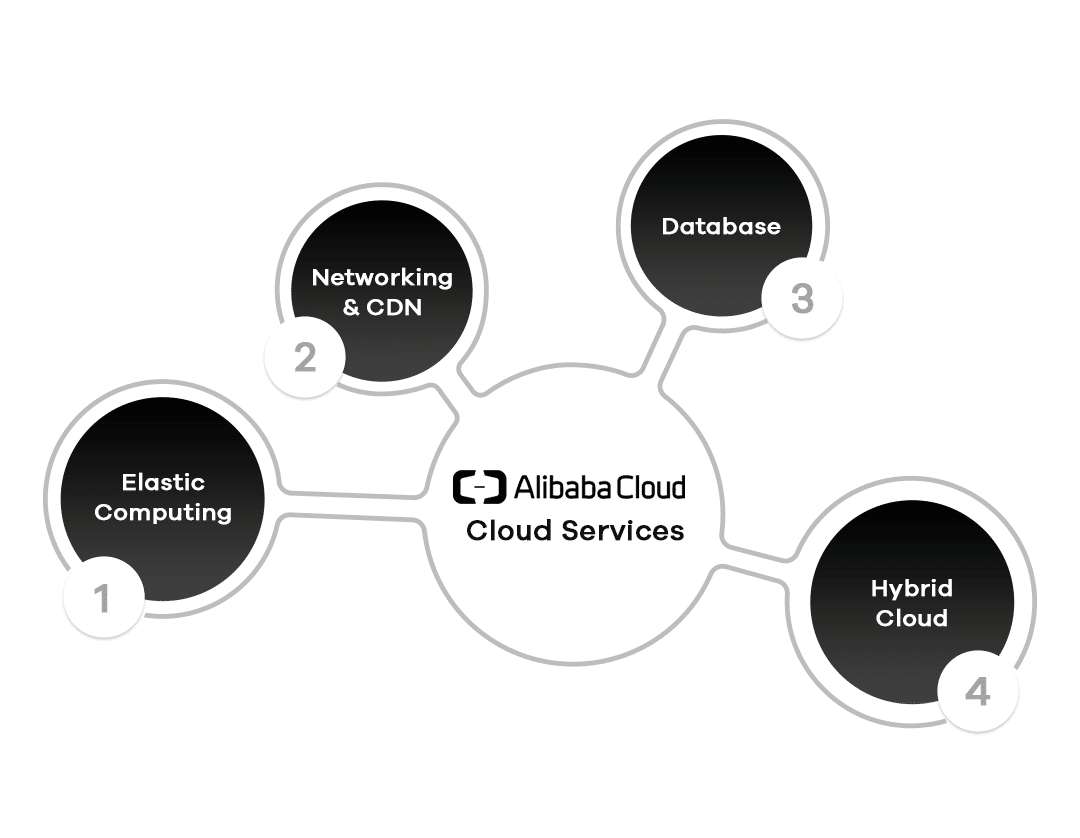
7. Digital Ocean
Digital Ocean is purpose-built to serve its varied clients. It takes a very simplified approach to web hosting. They target smaller developers with relatively simpler interfaces. It uses the concept of droplets to simplify choices for its clients. If a website owner wants to run a smaller project with developer–friendly solutions, they can alter and choose from the preset resource sets that Digital Ocean offers.
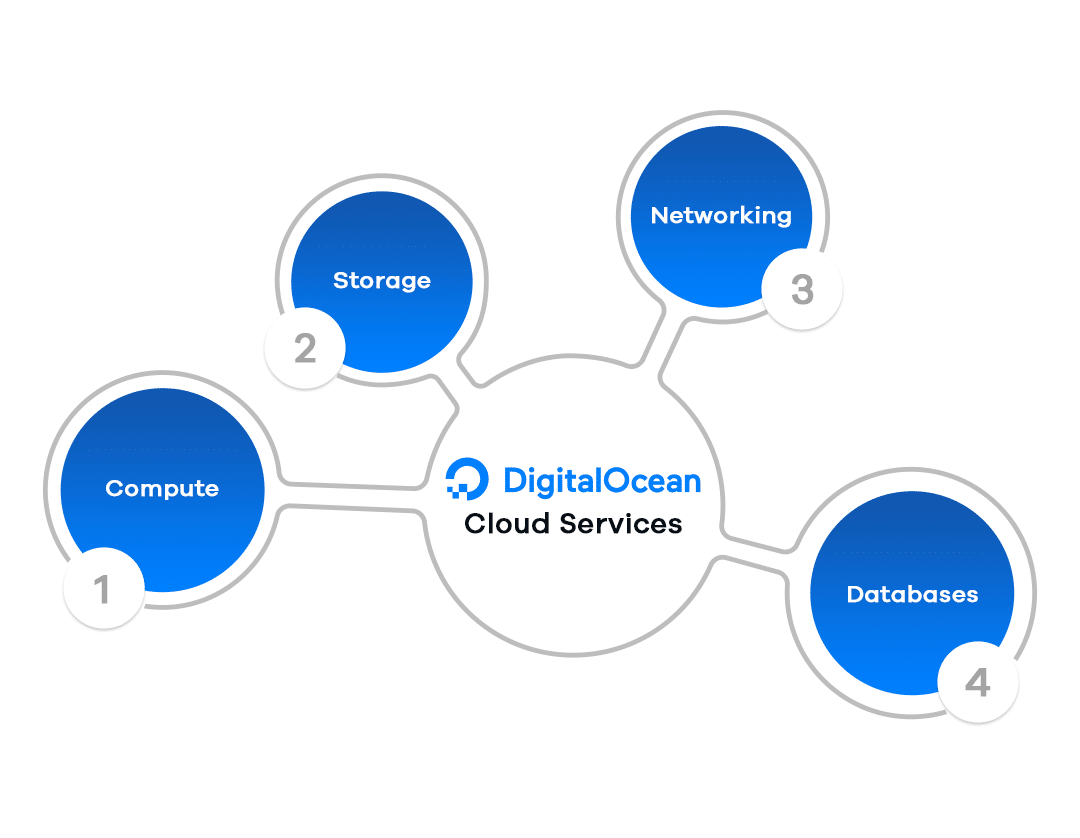
8. Google Cloud Host
Google Cloud Platform is a set of services that are provided by Google. We prefer it to other cloud server hosting services for various reasons. Pricing, for example, is better in this case. It is undoubtedly very fast which implies better performance for the clients. Google offers a unique feature of live migration of apps. In case of glitches or downtime, they migrate the running websites to other hosts. It has various offerings in the big data space as well. They take care of big data needs for our clients, guaranteeing them high productivity, remote and quick collaboration, higher security and reliability, as well as cost–effectiveness.
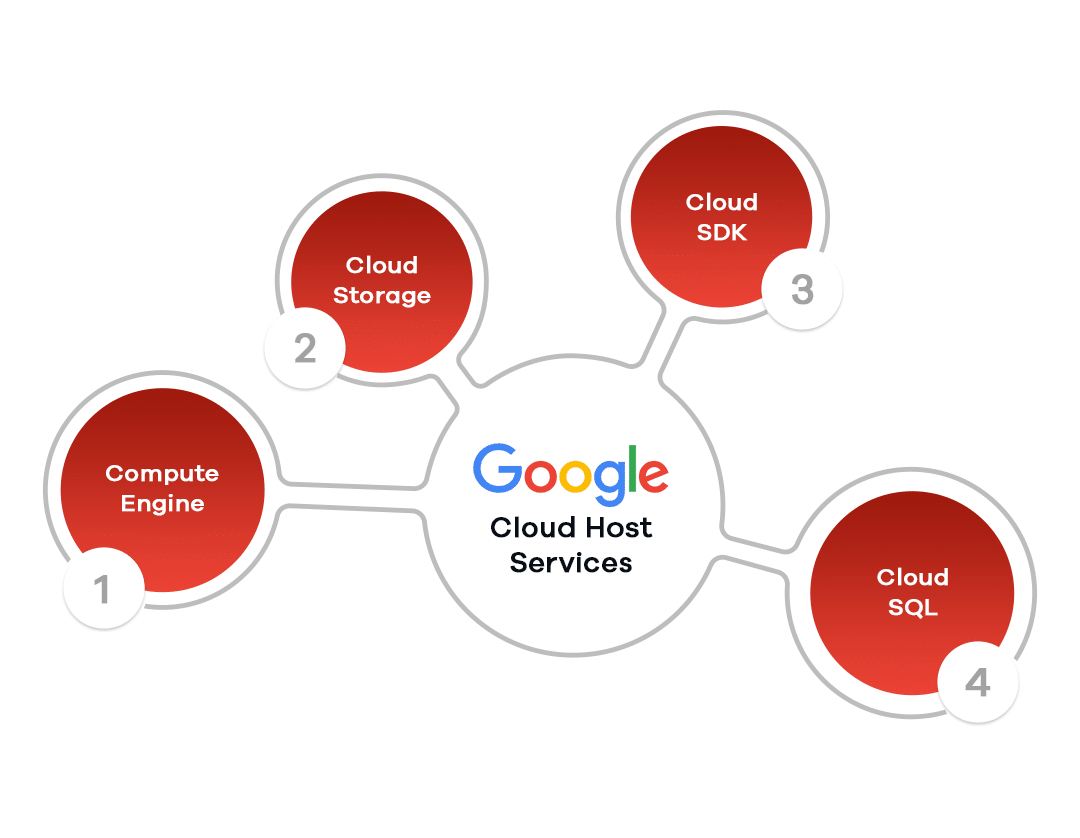
Cloud server hosts like these have changed the face of the hosting industry for the better. For every website owner, there is a perfect cloud host that can cater to the website’s needs and requirements. Signing up for one of these cloud server hosts can take the website a long way.
Conclusion
Cloud hosting utilizes a virtual framework of servers to oversee website management. Unlike conventional web hosting, it enhances dependability and reduces the likelihood of hardware malfunctions, thereby ensuring consistent website performance. Hope this guide helps you get precise picture on cloud hosting that will help you to make informed business decisions.
Frequently Asked Questions
Q. Is cloud hosting better than web hosting?
A. What kind of business determines this? For example, if it is a smaller website that will not use too many resources, cloud hosting might be more cost-effective. But if it is a website that attracts heavy traffic, web hosting might be ideal since it will ensure better speed, and higher uptime, and reduce the chances of glitches.
Q. How much does a cloud server cost?
A. This depends on a variety of factors like scalability and administration. There are cloud hosts that charge as little as $2.5 a month. This keeps increasing according to your requirements, and the kind of cloud hosting you are looking at.
Q. Is cloud hosting the same as cloud computing?
A. No. Cloud server hosting is not the same as cloud computing. Multiple website owners use several servers for cloud hosting, pooling the resources for use by all of them. On the other hand, cloud computing is a software infrastructure that has remote servers to manage data across the internet.
Q. Which are the best cloud servers?
A. The best Cloud Hosting Services are:
1. AWS
2. Kamatera
3. Azure
4. Alibaba Cloud
5. Digital Ocean
Q. What are the benefits of cloud hosting?
A. Top 3 benefits of cloud hosting:
Easy Upgradation
Flexibility
Cost-effective




